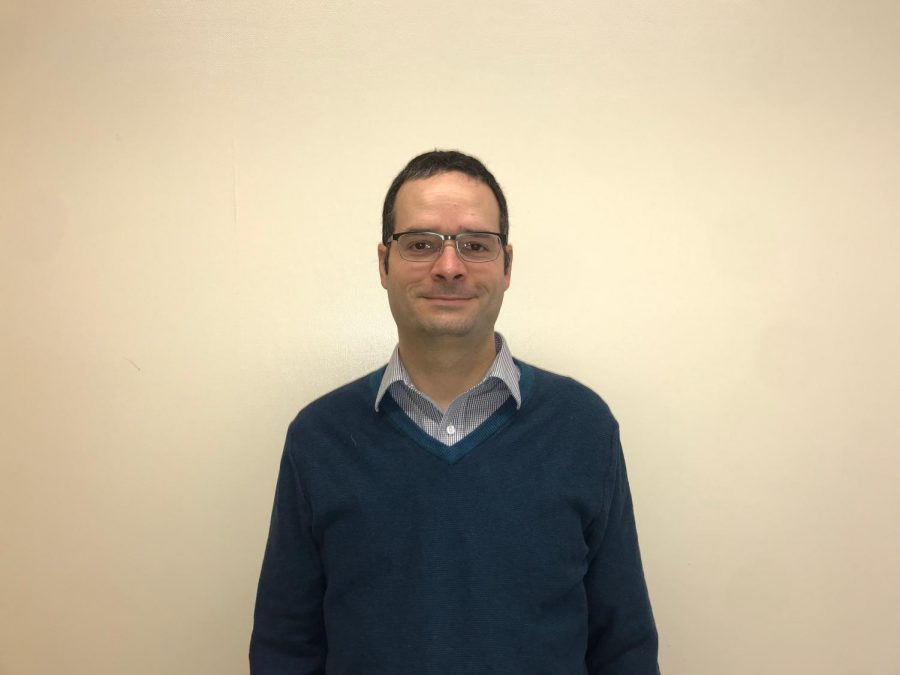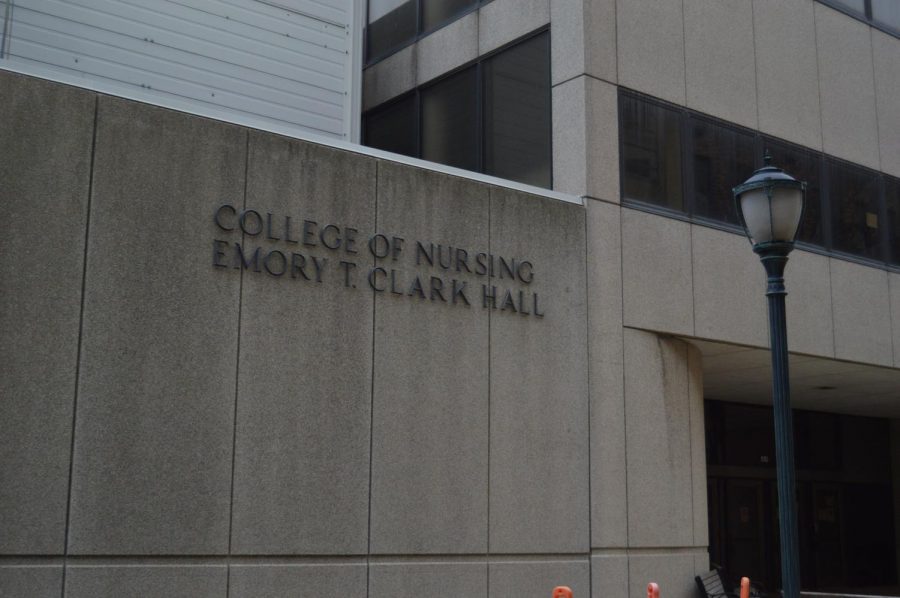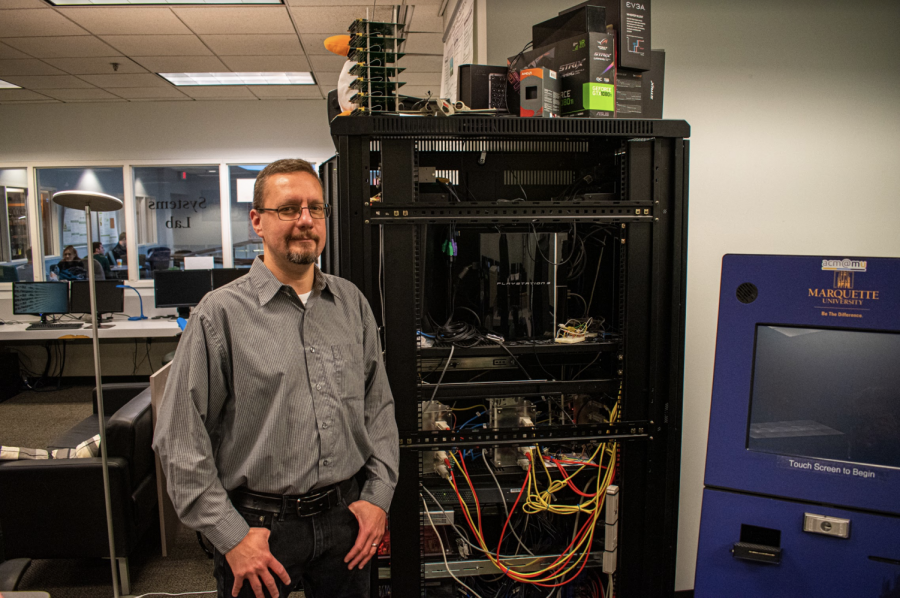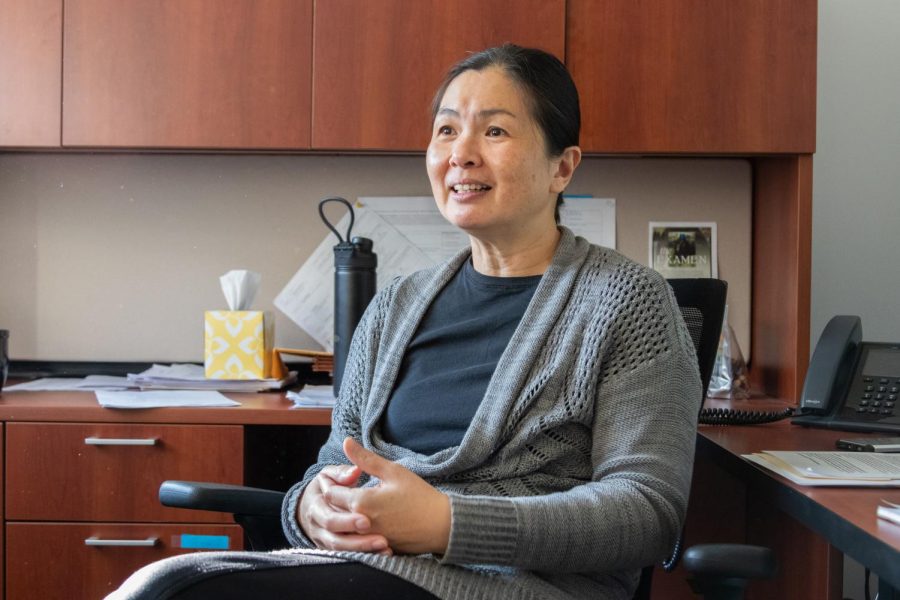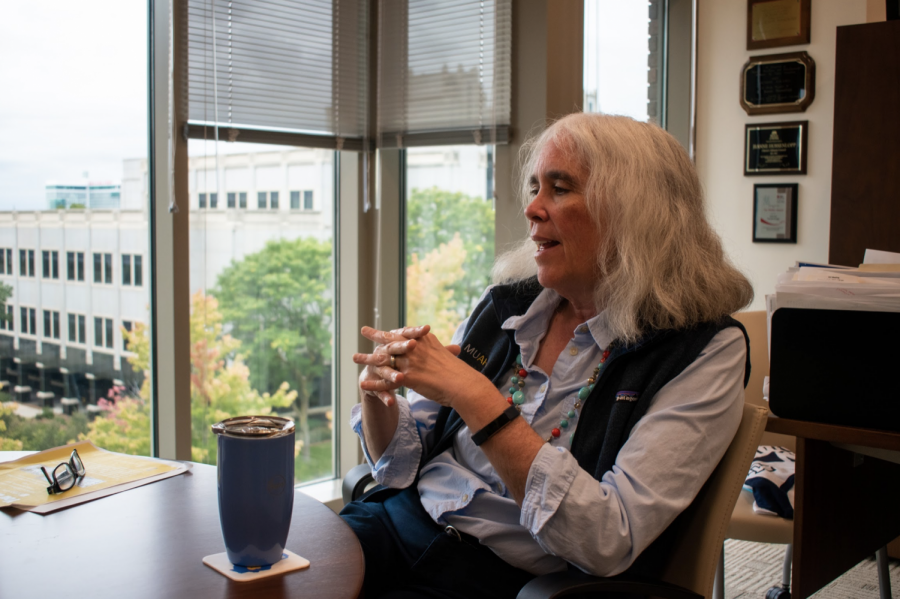Marquette University assistant professor Guilherme Garcia recently received $200,000 to research sleep apnea, a disorder that causes a person’s breathing to be interrupted during sleep, Garcia said.
The grant was received from the Advancing a Healthier Wisconsin Endowment at the Medical College of Wisconsin. More than $3.1 million was awarded to five community initiatives and six health research projects, including Garcia’s, said Cheryl A. Maurana, founding director of the Advancing a Healthier Wisconsin Endowment.
“My research will focus on detecting the most common contributor to obstructive sleep apnea to get better diagnosis treatment identification for patients,” Garcia said.
Garcia explained that current options to treat sleep apnea include an oral appliance which can cause great discomfort, sleep apnea masks and surgery. Oral appliances pull the jaw forward to open the airway, but can cause problems with teeth and are not permanent. Surgery is a more permanent option, but it can be very costly and has many risks. Garcia already began his research.
“The gold standard treatment for sleep apnea is (a) Continuous Positive Airway Pressure device which increases the pressure in the airways and keeps the airways open,” Garcia said. “The problem with CPAP is that it is uncomfortable and many patients don’t want to use it.”
Garcia said different surgeries are available, but the challenge is that it’s not clear which surgery to perform because there are many anatomic components that can contribute to sleep apnea. It can be caused by many different parts of the body, including the nose, tongue or epiglottis.
“My hope is that my research can help surgeons better understand these different anatomical structures and allow them to select the proper method for patients,” Garcia said.
Garcia said he has two main reasons to research sleep apnea.
“First, it’s a high-prevalence disease and there’s not any good treatments available and second, my background is in biomedical engineering, and I think I can apply that to help surgeons learn more about sleep apnea,” he said.
Garcia and his team, which includes a few Marquette graduate students and post-doctoral fellows are conducting research in the Medical College of Wisconsin, which will take the next couple of years.
In addition to his research, Garcia teaches an engineering class called Transport Phenomena, a course designed to apply mass, momentum, and mechanical energy balances to biomedical fluid systems.
“You can tell Dr. Garcia is well-versed on what he’s teaching and you’re always learning something different,” Brenden Quinette, a junior in the College of Engineering and student in his class, said.
“My goal for the future is to identify the site of collapse for treatment and create a method from our research that is accurate and can be implemented for clinical care to treat sleep apnea,” Garcia said. “This could also eliminate the current costly procedures for patients.”

